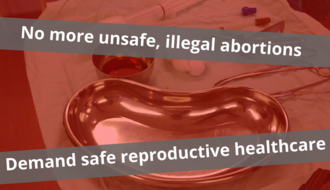- Featured
- Clean air
- Climate justice
- Consumer Rights
- Corporate Accountability
- Data access
- Early Childhood Development
- Economic fairness
- Education
- Electoral fairness
- Environmental justice
- Food justice
- Gender based violence
- Grants/social assistance
- Health
- Housing and infrastructure
- Industry interference
- Land Justice
- LGBTQIA+ rights
- Media/ information access
- Public transport
- Racism
- Reparations
- Safety
- Sanitation
- Service Delivery
- Sexual and Reproductive Rights
- Social justice
- Unemployment
- Womxn's rights/ gender equality
- Workers' rights
- More
-
Transparency and Timeous Resolutions with reference to the Life Esidimeni disasterMental health patients are one of our vulnerable populations, and needs care and protection. Care for those suffering from mental illnesses should be conducted in a dignified manner. The 2013-2020 South African Mental Health Policy Framework and Strategic highlights the fact that "the human rights of people with mental illness should be promoted and protected". The relocation of the Life Esidimeni patients are in stark contrast to the Mental Health Policy and the South African Disability Act. A number of reports have indicated that the necessary care and human rights treatment of these patients have not been met. "Just because You can't Speak; doesn't Mean You don't have Anything to Say" MENTAL HEALTH CARE ACT 17 OF 2002 ACT To provide for the care, treatment and rehabilitation of persons who are mentally ill; to set out different procedures to be followed in the admission of such persons; to establish Review Boards in respect of every health establishment; to determine their powers and functions; to provide for the care and administration of the property of mentally ill persons; to repeal certain laws; and to provide for matters connected therewith. PREAMBLE RECOGNISING that health is a state of physical, mental and social well-being and that mental health services should be provided as part of primary, secondary and tertiary health services; RECOGNISING that the Constitution of the Republic of South Africa, 1996 (Act No. 108 of 1996), prohibits against unfair discrimination of people with mental or other disabilities; RECOGNISING that the person and property of a person with mental disorders or mental disabilities, may at times require protection and that members of the public and their properties may similarly require protection from people with mental disorders or mental disabilities; and RECOGNISING further that there is a need to promote the provision of mental health care services in a manner which promotes the maximum mental well-being of users of mental health care services and communities in which they reside [http://www.hpcsa.co.za/Uploads/editor/UserFiles/downloads/legislations/acts/mental_health_care_act_17_of_2002.pdf] WHITE PAPER ON THE RIGHTS OF PERSONS WITH DISABILITIES Approved by Cabinet on 9 December 2015 The White Paper is a call to action for government, civil society and the private sector to work together to ensure the socio-economic inclusion of persons with disabilities. We therefore seek to create a caring and inclusive society that protects and develops the human potential of its children, a society for all where persons with disabilities enjoy the same rights as their fellow citizens, and where all citizens and institutions share equal responsibility for building such a society. “Everyone is equal before the law and has the right to equal protection and benefit of the law. Equality includes the full and equal enjoyment of all rights and freedoms. To promote the achievement of equality, legislative and other measures designed to protect or advance persons or categories of persons, disadvantaged by unfair discrimination may be taken.” The Constitution of the Republic of South Africa, 1996 [http://www.gov.za/sites/www.gov.za/files/39792_gon230.pdf]190 of 200 SignaturesCreated by Janine Bezuidenhoudt
-
Stop drugs trade in Rosettenville, JHB-SouthWe see everyday the dangers of drugs and the ripple effect they have on our already deteriorating psycho-socio-economic conditions. If we do not do anything about it, it will only get worse. The future of our beloved country lies boldly in our kids, very astonishingly. We must fight this war on drugs. This brings me to the most vital and painful truth, "Lelilizwe lizobuswa yizinyoni..."8 of 100 SignaturesCreated by Mandla Masuku
-
Make Gauteng Community Health Workers PermanentThis issue is important because the health of poor communities, who have no options like private health care, depends on Community Health Workers. In a context of deteriorating health and other social outcomes, the outsourcing of these workers threatens to lead to a further deterioration in the health of township residents. The issue is also important because the Minister is avoiding her constitutional responsibility of providing decent, affordable health care, as well as her constitutional responsibility of fair labour practice.1,203 of 2,000 SignaturesCreated by Boipelo Khukhe
-
Support Garden Project versus Playground12 Million People go to bed on a hungry stomach every night in our country (http://m.timeslive.co.za/thetimes/?articleId=7906847)9 of 100 SignaturesCreated by Dira-Mintiro Social Coop
-
Stop selling blood jewelleryMining companies have been exploiting workers for decades when it has come to workers rights, safety and health. Many workers have died, slow painful deaths with no compensation, having worked in mines that produce gold used by jewellers. Public pressure forced regulation of conflict diamonds, and labelling of goods from Israel, now we need to use consumer power to transform the gold industrial complex.20 of 100 SignaturesCreated by Paul M
-
Pads, bleeding the poor dry!Akhona is in grade eight. Like many of her classmates, she often misses school when she has her periods because her family cannot afford sanitary pads [1]. Akhona is not alone. On average in Mzansi. a girl will miss 60 days of school because of her period [2]. And some are forced to use socks, newspapers and worse because they can’t afford sanitary pads. Over time this can cause girls to drop-out completely. If they struggle through, they often find themselves unable to fully take part in school activities. Livity Africa's LiveVIPZA campaign, which initiated the parliament challenge, aims to present a plan in June on how to provide sanitary pads to low income communities to the Health Portfolio Committee. But the implementation requires that the Ministers of Basic Education, Health and Social Development kick start the plan. [1] I use a sock as a sanitary pad, says Langa learner http://www.groundup.org.za/article/i-use-sock-sanitary-pad-says-langa-learner_2418/ [2] Dignity Dreams article with information on how many girls miss school a month and in a year: http://www.ngopulse.org/organisation/dignity-dreams3,875 of 4,000 SignaturesCreated by Livity Africa and Pontsho Pilane

-
Reproductive justice nowYoung people were encouraged to register for the upcoming elections, but Noziziwe Buthelezi* won’t be voting in these elections or ever. She died last week after after a failed, unsafe abortion. While abortion is legal in South Africa, women like Noziziwe* are forced to risk their lives by using unsafe, illegal options. The posters advertising these fill our streets, yet most public institutions have no information about the safe, free alternatives available to women. If enough of us come together, we can demand that the National Department of Health (NDOH) upholds women’s right to access quality, affordable and acceptable sexual and reproductive healthcare services, including abortion. *Not her real name569 of 600 SignaturesCreated by The Sexual & Reproductive Justice Coalition

-
Call on Min. of Energy to commit to providing electricity for the families of SoshanguveThe number of burn victims is raising because of faulty prima stoves that explode. My sister Khensani, was unfortunately one of the victims/survivors in October 2019. She was preparing Sunday lunch for her children when all of a sudden the primus stove that she was using exploded and her face and abdomen caught fire. She was in ICU for weeks and she's still in hospital three months later at Dr George Mukhari Academic Hospital. Ever since this incidence we've discovered that she hasn't been the only one to experience this horror. We've met a number of other patients who have burned because of faulty primus stoves. This is a terrible ordeal that no one should ever have to experience, life has been very difficult for the whole family ever since. Khensani has 4 handsome sons who almost lost their mother because of this, Every South African citizen SHOULD have electricity! Primus stoves should be banned.47 of 100 SignaturesCreated by Edith Maluleke
-
Early childhood developmentChildren from age 1 to 6 got a very innovative education and my intake of children in 1 year is the proof that We provided a holistic education .173 of 200 SignaturesCreated by Nisha Singh
-
Stop food related illnesses: Food safety for allBetween late 2017 and early 2018 our country went down in history for the biggest listeria outbreak in history, affecting over 1000 people and killing almost 300. Many families were robbed of their loved ones by the very thing they work to put on their table- food. Thousands of lives were affected by the decisions of a group of individuals employed by the biggest and most indispensable industry in the universe, its all good and well that the perpetrators are being held accountable for their actions and it is also commendable that they are cooperative and willing to attempt to compensate for the damage caused (though 300 fold irreversible)- my issue is not about corrective action, its in preventative action, the listeria outbreak should have opened our eyes to the fact that the giant that is our food industry is not indestructible, in fact in as much as the industry is one of our greatest assets, it can easily turn into our biggest serial killer, with unsuspecting civilians as its prey and deadly bacteria as its modus operandi- we need to implement not only corrective action but preventative action as well, surely we can't wait until another outbreak or more lives lost before we educate society that listeria is not the only food-related pathogen? That there are a handful of other deadly germs that are waiting for ideal conditions to pounce. I think Africa has always placed so much focus on food availability and food security and I feel that not enough emphasis has been placed on what we should look out for when we finally get our hands on food. We need to educate the general public on what to look out for, how to prepare and store food safely, what to do when they suspect food is unsafe etc to help prevent another negative world record again.15 of 100 SignaturesCreated by Lydia Shoniwa-Sagonda
-
Sign to demand healthy food for [name of school] learners: MEC Panyaza Lesufi and MEC Dr Gwen Ram...Ensuring our children aren't hungry is our first priority as a community, but often the cheapest foods are unhealthy and can lead to health issues in our children, now and in the future, including type 2 diabetes, heart disease, high blood pressure, joint pain and certain cancers, which can be the result of lack of access to healthy food. We asked your school questions about what food most learners buy for lunch, and most said they buy kotas from vendors with sugary drinks. Learners also bought ice lollies, sweets and ice creams. This is not a balanced diet, and what we eat affects how much we can concentrate, and how sick we will get in the future. We use to have to just worry about HIV/AIDS, TB and other diseases, but now diseases like type 2 diabetes are increasing in our communities. The other reason we are getting sicker is because greedy junk food companies are aggressively marketing their products in our schools. But we can change this, if enough of us come together, we can ensure our voices are heard by the the MECs of Education and Health. If you don’t have email, you can join the campaign for free by dialing this code on your phone *134*1994*456#0 of 100 Signatures
.png)

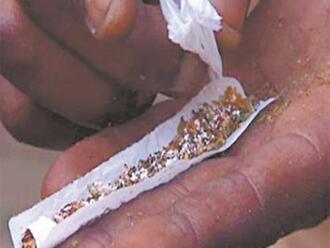

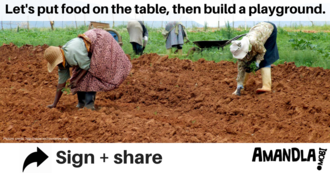.png)
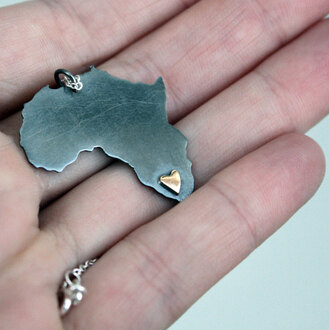
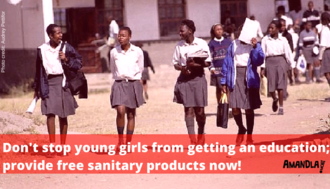.png)
